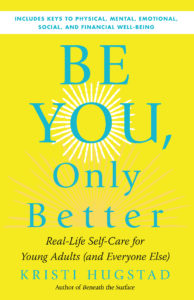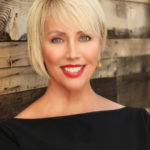 A year ago, as the mother of a high school senior – and as a certified journal writing facilitator, I found myself pulling out every personal writing tool I had in my repertoire. My daughter was struggling with what was quickly becoming an upsetting end to her 13 years in public school.
A year ago, as the mother of a high school senior – and as a certified journal writing facilitator, I found myself pulling out every personal writing tool I had in my repertoire. My daughter was struggling with what was quickly becoming an upsetting end to her 13 years in public school.
Since kindergarten, she had looked forward to her high school graduation and had already assembled her cheering section, consisting of close friends, teammates, family members, and mentors. In her mind’s eye, she already knew what graduation day would look like – until a global pandemic changed everything.
Even before the coronavirus hit, my daughter and her high school friends, along with other teens and young adults, were already facing intense mental health challenges like academic stress, relationship challenges, eating disorders, anxiety, and depression — just to name a few.
And when you add in tough pandemic realities like virtual learning, social distance from family and friends, and the loss of employment opportunities many are facing, it’s no wonder that many of today’s young people are feeling more isolated, afraid, and stressed than ever before.
The new book, “Be You, Only Better: Real-Life Self-Care for Young Adults (And Everyone Else)” – recently published by New World Library, introduces young people to simple, yet powerful day-to-day practices that promote mind and body wellness. With simple, straightforward tactics like journaling, mindfulness, healthy sleep, and sound nutrition, author Kristi Hugstad empowers young and old alike to take charge of their own wellness.
The book came to me at just the right time – and has now made its way to my daughter, who is in her first year at college, and is being circulated among her friends. It’s making an impact, so much so that I asked Kristi to join me on my blog today to touch on a few key topics addressed in the book.
******************
Why is self-care more important than ever right now?
When I wrote Be You, Only Better, I certainly did not foresee a global pandemic that would change everything. But that’s exactly why self-care is so important. We can’t control the world around us – we can only control ourselves, and we can choose to practice the self-care that can make us happier and healthier, despite our external environment.
It’s no secret that teenagers and young adults are struggling today. While teen depression, anxiety and suicide rates have increased dramatically over the last decade, the pandemic has made the situation even worse. Young people need a lifeline – and often, that lifeline is within themselves. That’s really what this book is about – showing young adults healthy ways to cope and providing the resources necessary to be the best version of themselves possible.
Journaling is one of the first self-care practices you offer in the book. Why is this important for young people to do?
Today, more than ever before, we lack the time and discipline to quietly sit and reflect. Information and entertainment has never been so easily accessible – often coming to us without much (if any) effort on our parts. Daily journaling forces you to sit with your thoughts and reflect on your life and situations you may not otherwise see clearly.
Young adults, in particular, can benefit from journaling because it creates an inner dialogue and promotes mindfulness – both of which build confidence and self-awareness. Journaling provides benefits that are great for anyone but particularly healthy for young adults like boosting emotional intelligence, strengthening self-discipline, increasing memory and comprehension and providing healing, just to name a few.
You say that good sleep is an important aspect of self-care. What advice do you have to offer to those who have a hard time sleeping?
Learning to prioritize sleep when you’re young is a skill that will serve you your entire life. Part of “prioritizing” sleep mean letting go of what may be preventing a good night’s sleep. That’s much harder than it sounds, because all of us really like things that tend to prevent restful sleep – caffeine, staying up late, sleeping in late, scrolling social media or watching TV in bed.
More than anything else, I’ve found that setting a sleeping schedule – and actually sticking to it by removing the obstacles that keep me from restful sleep – is key. Readying yourself for sleep is a foundational habit, so embracing it as a young adult can set you up for a healthier, happier and more successful future.
How does being in nature feed our self-care?
There’s just something healing about the great outdoors. Research confirms what many people know inherently – nature reduces stress and anxiety and promotes a general feeling of wellbeing. Being outside and away from the hustle and bustle also provides the perfect backdrop for practicing mindfulness, mediation and self-reflection. As the American Heart Association puts it, “humans evolved in the great outdoors, and your brain benefits from a journey back to nature.”
You encourage your readers to practice mindfulness. What does this look like on a daily basis?
It’s a popular buzzword right now, but mindfulness is much simpler than many people think. Mindfulness is the “pause” that happens between experiencing stimuli and responding to it. It’s essentially the ability to step back and check in with yourself and create an inner dialogue. Practicing mindfulness lends intention to your actions, putting you in the driver’s seat of your life rather than being along for the ride.
On a daily basis, mindfulness means taking the time you need – often that’s just a moment here and there – to check in with yourself, considering how you feel and what you need in the moment. While it seems simple, mindfulness does take effort. But when you take the time to check in with yourself, these moments of self-dialogue quickly become habit.
What is the most important thing you hope readers will take away from you book, “Be You, Only Better?”
The teenage and young adult years are exciting – and they’re possibly the most transformative of our lives. These are often years of self-discovery, filled with numerous choices and crossroads. The purpose of my book is to help teens and readers embrace who they are and become the best version of themselves possible.
But that doesn’t mean becoming something – or someone – they’re not. If I could instill just one takeaway in my readers, it would be this: you are enough just as you are. You are of infinite worth. Practicing self-care is important because you are important, and you deserve to live a healthy, happy and fulfilled life.
******************
 Kristi Hugstad is the author of Be You, Only Better: Real-Life Self-Care for Young Adults (And Everyone Else) and two other books. A certified grief recovery specialist and a grief and loss facilitator for addicts in recovery, Kristi frequently speaks at high schools. She is also the host of The Grief Girl podcast and lives in Orange County, California. Visit her online: https://www.thegriefgirl.com
Kristi Hugstad is the author of Be You, Only Better: Real-Life Self-Care for Young Adults (And Everyone Else) and two other books. A certified grief recovery specialist and a grief and loss facilitator for addicts in recovery, Kristi frequently speaks at high schools. She is also the host of The Grief Girl podcast and lives in Orange County, California. Visit her online: https://www.thegriefgirl.com

As a grandmother and a retired schoolteacher, I appreciate this book recommendation. Our young people have gone through a lot over the past year and this book is a great resource.